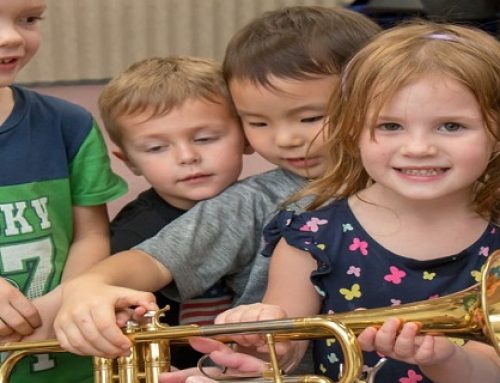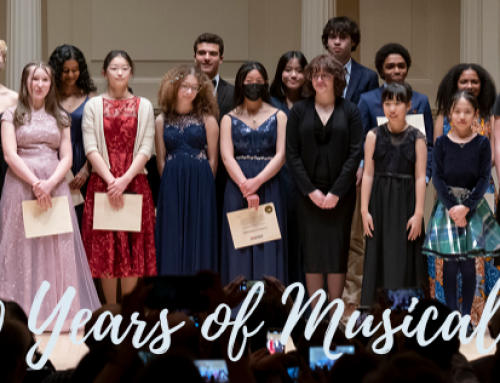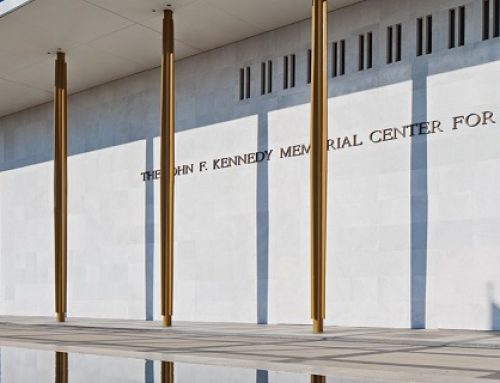5 Things You Need to Know About Starting Music Lessons
Is there a “right” time to begin music lessons? Well, when it comes to engaging your child in the art of music, the answer is “YES!”
-
It is never too early to expose your child to music.
As parents, you are always looking for fun, educational activities for your child. Try considering music lessons, perhaps? Taking music lessons can also be beneficial, as both listening to and singing along to songs are excellent for aural development and establishing a child’s love for music.
Forcing a child into music lessons before they are physically able to make a sound on an instrument, or are even interested in making music, could result in an unpleasant experience for your child.
As children get older, they develop more acute fine motor skills, greater lung capacity, and the ability to mentally focus for longer periods of time. Being developmentally ready for music lessons is essential for your child’s success!
-
Children Ages 1-3 Need to Build a Musical Foundation:
Classes for toddlers should include a musical experience for parents and young children through singing, movement, and exploration.
Instruction should develop the coordination needed to play instruments, words to simple songs, recognition of different rhythms, and the ability to differentiate between pitch, volume, and time. Through improvisation, imagination, song, play, acting, rhythm and movement, your child can discover his or her talent and creativity!
-
Children Ages 4-6 Require Guidance and Inspiration:
Classes for children ages 4 to 6 should include fun vocal warm- ups, proper breathing techniques, posture, instrument exploration, creating simple melodies, and playing easy repertoire, such as nursery rhymes and folk songs.
Students should also be introduced to musical notation as well as basic music vocabulary, techniques, and ear training through musical games and partner activities. This first introduction to musical instruments and music theory allows children to build foundational skills, and to discover their favorite instrument for when they are ready to move to private instruction.
-
Start Where You Feel Comfortable
Seek out early-childhood music classes or enroll in private music lessons!
Look for classes that offer a curriculum, which incorporates singing, movement, rhythm exercises, introduction to instrument families, and noodling on age-appropriate instruments!
-
Pair the Student’s Age with Age-Appropriate Instruments
A brass instrument such as the trumpet or a woodwind instrument like the saxophone both take a greater breath capacity, and would be too large for most children between the ages of 1 and 8 to play. Not to mention, we wouldn’t want to do any damage to your child’s teeth! We recommend waiting for those permanent teeth to come in before working the face muscles. To recap, it’s better to begin brass or woodwinds at around age 9.
For children ages 6 and older, however, voice, guitar, drums, or recorder lessons would be fun!
For children ages 4 and older, the piano is a great foundational instrument because students are able to see what notes to play, and it does not require a particular air support or embouchure. String instruments like the violin or cello are also recommended because string instruments come in smaller sizes and are conducive to smaller body types.
So, get your child signed up today for music lessons at the International School of Music —you’ll see the difference! Our friendly administrative staff is available to answer your questions, schedule you for an introductory lesson, and help you find the teacher that best meets your needs! For more information, call our Potomac music studio at 301.365.5888 or Bethesda music studio at 301.320.4400 or email us at info@ismw.org!






